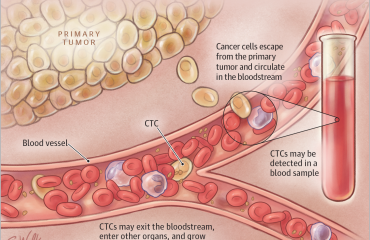A research scientist’s work is never done. It involves planning, is often rigorous, painstaking and always evidence-based. When theories are proven, the results can yield major breakthroughs; when theories fail, it is back to the drawing board to begin again. The Foundation for Gender-Specific Medicine is proud to note that many of its awardees have been and continue to be involved with major research initiatives that we are hopeful will yield breakthroughs in the years ahead.
It is my pleasure and privilege to present updates on where we are now and what you—our generous supporters have made possible.—Dr. Marianne Legato
Dr. Chen Wang, Birch-Derchin Scholarship Awardee, Columbia University
Why do men and women respond to pain, process information, and behave so differently? What structural and genetic differences between men’s and women’s brains contribute to these differences? And, why do many neurological diseases, such as Alzheimer’s and Parkinson’s, have more severe consequences in one gender than the other?
These are just some of the intriguing questions that Birch-Derchin Scholar, Dr. Chen Wang is trying to answer as she focuses on the differences in the brain between males and females in the hopes of one day developing targeted treatments that are gender-based.
To start understanding the biological mechanisms of sex differences in the nervous system, Dr. Chen turned to the roundworm C. elegans, a model organism in which one can easily identify and modify genes involved in brain function. As in humans, C. elegans males and females display sex differences in the brain. She focused on a group of genes— “dmd genes” that exist in the genome of worms and humans and that have been shown to contribute to sex differences in specific sexual organs. “I discovered that some of these genes are also expressed differentially in male and female brains,” stated Dr. Wang. “Through gene knockout I found that one of these genes indeed influences differences in behaviors of males and females.”
Dr. Wang credits the Birch-Derchin Scholarship with significantly contributing to defraying the costs of critical reagents and maintaining experimental animals for her research. In the future, she plans to investigate how the genes she discovered affect differences in brain function of males and females. When completed, the study will also provide insights into sex differences in other organisms and the mechanisms that give rise to gender differences in neurological diseases.
The premenopausal female heart exhibits natural protection from ischemic injury (constriction of blood flow in the heart vessels), which can reduce the damage sustained from a heart attack. However, the protective mechanism remains largely unknown.
Using his award from the Foundation for Gender-Specific Medicine, Dr. Kohr’s laboratory began investigating S‐nitrosoglutathione reductase as a potential target for reducing injury in both male and female hearts.
S‐nitrosoglutathione reductase is an enzyme that regulates the intracellular levels of protein S‐nitrosation, which is a nitric oxide‐derived post‐translational protein modification that plays a protective role in ischemic injury. Recent findings demonstrate that S‐nitrosoglutathione reductase inhibition reduces ischemic injury in male hearts, but exacerbates injury in female hearts.
The protection observed in male hearts appears to be driven by an increase in protein S‐nitrosation, which is consistent with Dr. Kohr’s prior work, but surprisingly protein S‐nitrosation levels remained largely unchanged in female hearts with S‐nitrosoglutathione reductase inhibition.
According to Dr. Kohr, “This striking sex disparity suggests a key sex‐dependent difference(s) in the regulation of S‐ nitrosation‐mediated cardioprotection. These results further suggest that a ‘one size fits all’ approach cannot be used to treat myocardial ischemic injury in both males and females.”
Dr. Kohr’s award was of great assistance in purchasing necessary equipment, supplies and experimental animals. His study was recently submitted as a manuscript to Circulation Research, which is the American Heart Association’s flagship journal for basic research, and is currently in revision after receiving a favorable review. Future experiments will role estrogen plays in the regulation of S‐nitrosoglutathione function.
Prenatal exposure to the hormone testosterone was studied by Professor Voegtline and her staff because they believe it underlies a host of sex differences in health and development observed later.
Rapid development in the prenatal period underscores the sensitivity of the developing fetal brain. However, studies often rely on measures such as birth weight, to infer the intrauterine milieu. The primary goal of the award is to add measurement of DNA methylation, a direct marker of gene expression that may be altered by prenatal exposures, in umbilical cord blood sampled at the time of birth.
To date, 58 women have enrolled in the larger prenatal study, and 40 cord blood samples have been collected by labor and delivery nurses at birth (n=23 males, 17 females). As Professor Voegtline awaits completion of the methylation measurement by the Johns Hopkins Genetic Resources Core Facility, her hypothesis remains that prenatal testosterone exposure is associated with cord blood DNA methylation, and that increased methylation will be observed in male neonates.
Early genetic testing of gene expression (i.e., DNA methylation) is a promising but expensive endeavor that would not have been possible without this award. Notes Professor Voegtline, “We are still far from offering this as a routine test in newborns, but funding research projects of this nature offers potential to perform precision pediatrics, where targeted treatment or medical care may be tailored by sex starting at birth, and based on sex differences in genetic makeup. The Foundation for Gender-Specific Medicine highlights a growing appreciation of sex differences in health, development, and disease across the life course. Many exciting opportunities await and I hope to continue to contribute to these efforts!”
Strategic Communications Professional/Content Strategist/Marketing Communications Consultant





